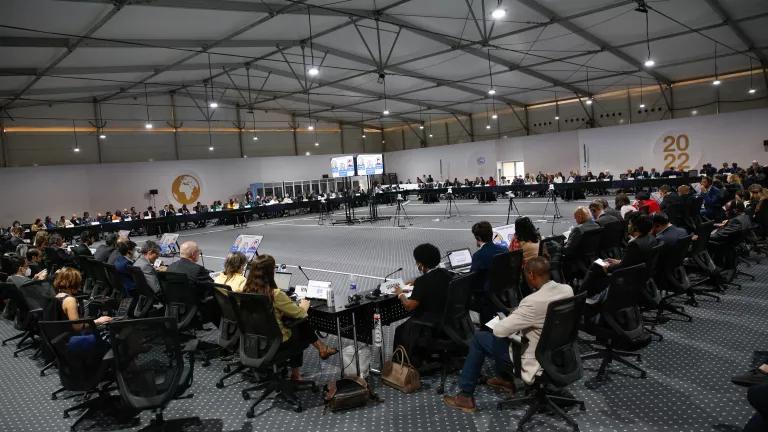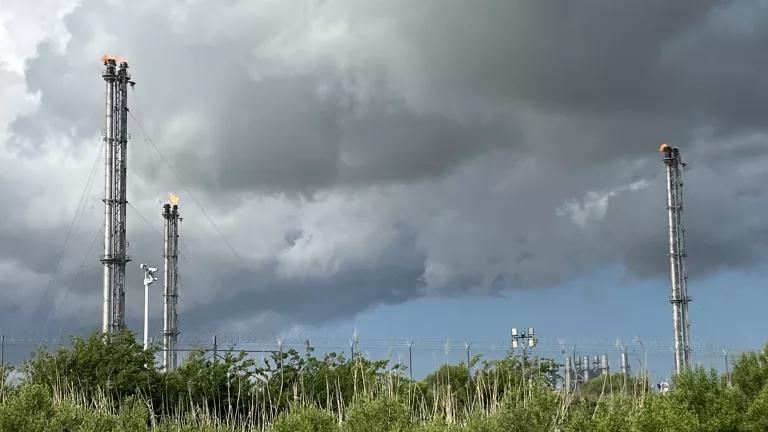Latin America Green News: Smog Shrouds Chilean City, Trawling in Costa Rica, Authorities Reject Mexican Gold Mine
Latin America Green News is a selection of weekly news highlights about environmental and energy issues in Latin America.
June 9-14, 2013
Chile
The capital city of the Araucanía Region, Temuco, and nearby Padre Las Casas are experiencing severe air pollution, marking their 21st air pollution episode this year. Regional environmental authorities reported that contaminant levels topped 100 micrograms of fine particulate matter, more than two times the World Health Organization’s recommended limit of 50 micrograms. As a result, the Minister of Health declared special measures to protect communities, such as prohibiting the burning of firewood, restricting sporting activities and recommending that people wear masks. (La Segunda 6/12/2013; Santiago Times 6/12/2013; La Nación 6/14/2013)
A new survey in the Patagonian region of Aysén found that 87.2% of the 1,600 participating residents believe the proposed mega-dams HidroAysén and Río Cuervo would be bad for the region. About 11.5% believed the projects would be positive. The Patagonia Defense Council also launched its new “Vota Sin Represas” initiative to encourage parliamentary and presidential candidates to commit to stopping these massive hydroelectric projects in Patagonia if they are elected. (El Mostrador 6/10/2013; El Mercurio 6/9/2013)
The “20-20” bill, which proposes to raise the mandatory contribution of renewable energy to Chile’s total generation to 20% by 2020, received a lot of attention this week from different sectors. During a national debate, presidential candidates Michelle Bachelet and Andrés Velasco proposed elevating the number further to 30% by 2030. In Congress, several members of Parliament suggested amending the law to 20% by 2025. In response, energy generators stated that any of these goals would be difficult to achieve. (El Mercurio, via Revista Electricidad 6/12/2013; La Tercera, via Revista Electricidad 6/14/2013)
A $5.86 million grant financed by the Global Environmental Facility (GEF) will go to help approximately 2,000 rural families and indigenous communities in Chile’s poorest rural areas become more sustainable in their agricultural, livestock and forestry practices. The grant will finance the Sustainable Land Management project, which aims to encourage a comprehensive approach to environmental sustainability and rural development on over 4.2 million acres of land. (GEF.org 6/10/2013)
Costa Rica
A new legislative initiative aims to eliminate imports of equipment used for trawling and other fishing practices that harm marine life. The proposal would modify the existing Law on Fishing and Aquaculture to prohibit the use of such equipment. Bycatch and over fishing is a serious problem in Costa Rica. A study by the Fisheries Centre of the University of British Columbia indicates that each year in Costa Rica 30,000 tons of bycatch are captured, double what the country reports. Overfishing has also led to an 80% drop in shrimp populations over the past twenty years. (El Financiero 6/13/2013)
Costa Rica’s Institute of Technical Norms (Inteco) is now accredited to verify emission inventories and carbon neutrality for national and international companies. The accreditation was granted by the Costa Rican Accreditation Entity (ECA). Inteco sought accreditation after a 2011 law mandated that only institutions accredited by ECA could audit companies seeking carbon neutrality. (El Financiero 6/11/2013)
Mexico
At the third Global Green Growth Summit (GGGS), which took place in Korea, the Secretary of the Ministry of Environment and Natural Resources (SEMARNAT), Juan José Guerra Abud, spoke as a member of the “Making Green Growth Possible” panel and discussed the steps Mexico has taken to ensure its own green growth such as the General Law on Climate Change in 2012 and the recently launched National Strategy on Climate Change. He emphasized that these steps have already made a difference and will begin to shape all future growth in Mexico. (Biosfera Sala de Prensa 06/11/2013)
Mexico’s renewable energy generation fell 1.64% last year from 2011 levels, comprising only 14.9% of the total energy generation that year. The Secretary of Energy (Sener) stated that, because the installed capacity of renewables is 20.5% of Mexico’s total generation, there is a difference between what is installed and what is being used. Sener believes this discrepancy may be due to a lack of availability of the renewables, and the current low costs of natural gas. (El Economista 6/12/2013)
The Ministry of Environment and Natural Resources (SEMARNAT) has rejected the company Esperanza’s initial Environmental Permit Application (MIA) for the Gold mine project in Tetlama, Mexico. SEMARNAT stated that the MIA reflected inconsistencies in categorizing the environmental climate in which the leach pad would be located, and it does not include sufficient hydro-geological assessment of the location in which the leach pad would be located. The President and CEO of Esperanza, Greg Smith, said that while they are disappointed with this initial result, the company respects SEMARNAT’s decision and feels they can provide adequate information to cover what they lacked. They will be re-submitting an MIA with the necessary information provided. (Azomining.com 06/11/2013)
Regional
Peru will host the United Nations annual climate change negotiations in 2014. Both Peru and Venezuela had bid to host the ministerial-level conference of the parties, also known as “COP20,” which will take place one year before the deadline for members to come to a new agreement to curb climate change globally. COP19 will take place in November this year in Poland. (Andina.com 6/14/2013)
The U.S. Energy Information Agency released new estimates about the size of recoverable shale reserves in Latin America, and Argentina and Mexico still are listed as the top countries in Latin America. Argentina has already seen some success in developing its “world class” resources at 50 wells in the Neuquén basin, while Mexico’s national oil company, Pemex, has had mixed results with its first shale wells and estimates its first production will not come until 2015. Brazil also has considerable shale resources, but has preferred to focus first on developing its off-shore reserves. (BNAmericas 6/11/2013; subscription required)




